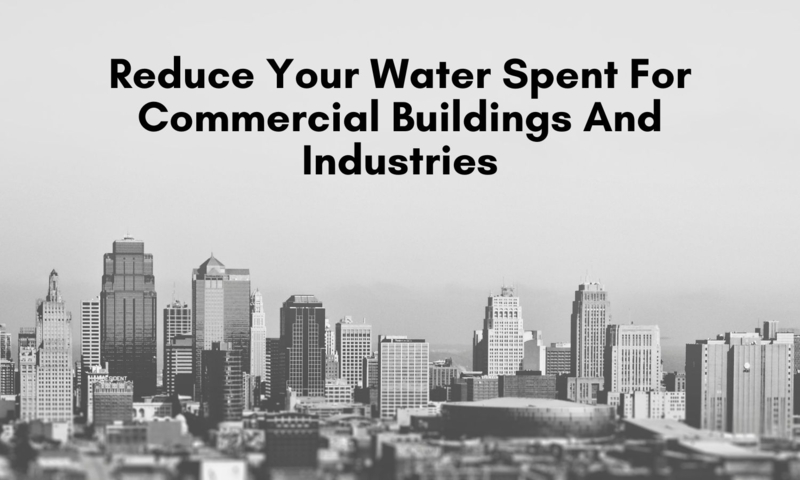Reduce Your Water Spent For Commercial Buildings and Industries
Published on by Shibani Thakur, waterapp2021@gmail.com in Social
Many things may be done to reduce water consumption in industrial settings, such as raising employee knowledge, monitoring water use, finding the most efficient water use, recycling water waste, installing water-saving technology like Water Level Sensor for Business , and checking pipelines regularly.
There is just 3% of Earth's water that is suitable for human consumption. Industrial use accounts for 5-10% (as of 1999) of the world's total freshwater use. Water usage will increase in tandem with the global population. We need to raise awareness about how industries may save water by reducing their use, which can go up 15-20% by 2030. Additionally, the company's water bills, often known as cess returns, will be reduced.
Water is commonly utilized in industrial settings for various purposes, including cooling plants and equipment, cleaning and preparing products, and applying paints and colors.

How can commercial buildings and industries conserve water?
Install IoT Water Technology
Installing a water management system is an excellent approach to lowering water usage in commercial buildings like hotels, hostels, and hospitals. This water management system works on IoT water technology that enables us to conserve water use.
These advanced Iot water gadgets inform you about extra water use, water leakage, water overflow etc.
Perform Checks and Upkeep regularly
Water leaks and inefficiencies require frequent inspections and maintenance. Checking pipes, faucets, and toilets for leaks helps find and fix problems quickly. Small leaks waste a lot of water over time.
Early plumbing repairs prevent costly leaks and keep your system running smoothly, conserving water.
Make Use of Smart Irrigation Systems
Commercial premises with gardens or landscaping need irrigation systems. Water waste from overwatering and incorrect scheduling is common in traditional irrigation systems.
Installing new irrigation methods like Water Level Sensor for Business saves water. These systems reduce overwatering and runoff using weather data and moisture sensors to predict landscape watering needs.
Intelligent irrigation systems alter watering schedules based on weather to save water.
Educate and Involve Occupants
Awareness and engagement in water-saving techniques by Water Level Sensor for Business can reduce consumption.
Promote water conservation and suggest ways for building inhabitants to modify their daily routines through educational campaigns.
Instruct workers and renters to report inefficiencies and water leaks immediately. Creating a water-conscious culture throughout the facility can save a lot of water.
Store and Recycle Rainwater
Commercial buildings benefit from rainwater collection as an extra water supply.
Install rainwater collection systems to water plants, flush toilets, and refill cooling towers.
This reduces the requirement for potable water, which is suitable for non-drinking.
Commercial buildings can significantly aid water conservation efforts by installing rainwater gathering systems.
Reducing Water Use in the Construction Industry
Due to the high water demands of building activities, water conservation is paramount in the construction sector. Site preparation, concrete mixing, dust control, and equipment washing are just a few water-intensive processes the construction industry employs.
Water conservation by Water App can reduce building sites' environmental impact, safeguard water resources, and relieve local water demand. You can reduce construction water use by collecting rainfall, installing irrigation systems, water-saving fixtures, and recycling wastewater.
Water conservation awareness and contractor and worker training are other ways to enhance sustainable construction water use. By prioritising water-saving techniques, the building sector may encourage sustainable growth and safeguard water resources.
Minimising Water Use in the Service Industry
Water conservation by Water App in the service industry is needed to reduce environmental damage. Service industries like cleaning, sanitation, customer service, food, and entertainment require water. Hotels, restaurants, entertainment, and healthcare are examples.
Fixing leaks quickly, installing low-flow faucets and toilets, and optimizing water-intensive processes save water. Educating staff and customers about water conservation can promote responsible water use in the service business.
Water conservation can help the service sector meet sustainability goals and preserve a vital resource for future generations.
Taxonomy
- Industrial Water Managment
- Water Management
- Water Quality Management
- Water Resources Management